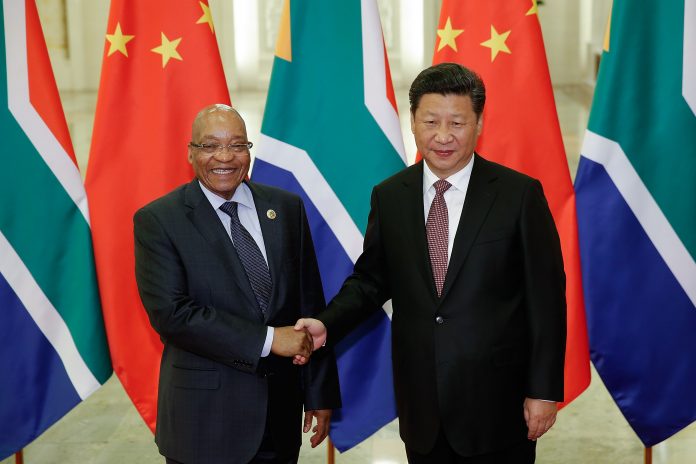According to Afrobarometer, Africans, especially those in the Sahel, maintain a good perception of China’s actions on the continent. Nevertheless, concerns are emerging about indebtedness and the lack of autonomy that it implies.
Four years after its first report, the Afrobarometer is releasing the results of a major survey of Africans’ views on China. This, as 2020 marks the twentieth anniversary of the China-Africa Cooperation Forum in Beijing. Cooperation which will be the subject of another big meeting, this time in Dakar, in September 2021.
In 2016, 63% of Africans surveyed (in 36 countries) had a very positive image of China. Country which appeared to be a great support in infrastructure and development projects, despite the low number of jobs created so far by said projects.
In 2019-2020, Afrobarometer focused its survey on 18 African countries. The questions were this time more specific, relating to the perception of financial aid from China, the continent’s dependence on this ally, etc. The majority of Africans continue to prefer the US development model to that of China.
This opinion is more pronounced among young Africans. And China’s influence is always viewed favorably, even as current Africans feel their governments are borrowing too much from Chinese financiers. Note that in Mali, Burkina Faso, as well as Botswana, China is ahead of the United States as a model to follow.
Six in ten Africans consider China’s influence to be “very positive” or “positive” and seven in ten consider English the language to be learned, to the detriment of Chinese. While 55% of Africans surveyed consider that Chinese companies have had an influence on the economic activity of their country, this proportion seems to be fraying over the years.
Defiance of Tunisians!
A given must provoke reflection. In the 18 countries under review, China (for 59% of Africans) and the United States (58% of Africans) are seen as having a positive influence on their country. The sub-regional organizations (ECOWAS, CEMAC, etc.) only receive 55% satisfaction, the African Union 50%, barely more than the former colonial power (46%). Note that Russia receives only 36% favorable opinions in terms of influence.
By country, it is in Cape Verde, Guinea, Mali and Burkina Faso that China receives the most applause under the criterion of positive influence. While Tunisians are only 29% to be positive vis-à-vis China; they don’t like the Americans any more, anyway.
The Afrobarometer survey reveals that less than half (48%) of African citizens are aware of Chinese loans or financial aid given by China to their country. Of these, a quarter (24%) believe that China places more demands on aid than other countries, while 41% say that China’s financial support comes with “a little less” or “a lot less ” constraints attached. And over 77% are concerned about loan repayments. A majority (58%) believe their governments have borrowed too much money from China.
Plebiscite in the Sahel!
In countries where China is building infrastructure, perceptions have remained stable or have become more positive. This is particularly the case in Ghana, Nigeria, Uganda, Guinea and Ivory Coast.
Perceptions of China have changed for the better in some countries in the Sahel region. As we know, China is heavily involved in security and development activities. It leads infrastructure projects related to the “New Silk Roads” and participates in United Nations operations in the region. This is why, in Burkina Faso, the popularity of the Chinese development model has almost doubled in four years.
In Guinea, where Chinese companies are involved in mining projects, 80% of citizens perceive China’s economic and political influence as positive; four percentage points higher than five years ago.
These Afrobarometer data show that no country or international organization has a monopoly of influence. Moreover, while the Chinese influence remains appreciated, the enthusiasm seems to be waning. We can see the effects of debates on the debt and accusations of stranglehold on African interests by China.
Afrobarometer is continuing its investigation, the final results of which should be released before the Dakar Summit. The opportunity to understand how Africans judge Chinese policy in the face of the health crisis linked to the coronavirus pandemic; China having promised technical assistance (masks, in particular) and vaccines.
Likewise, the survey published at the end of 2020 misunderstands the effect of the information, relayed by the African media, about the discriminatory treatment suffered by black migrants in China, especially in the Canton region.
Reference: https://qz.com/africa/1936504/what-africans-really-think-about-chinas-role-in-africa/































